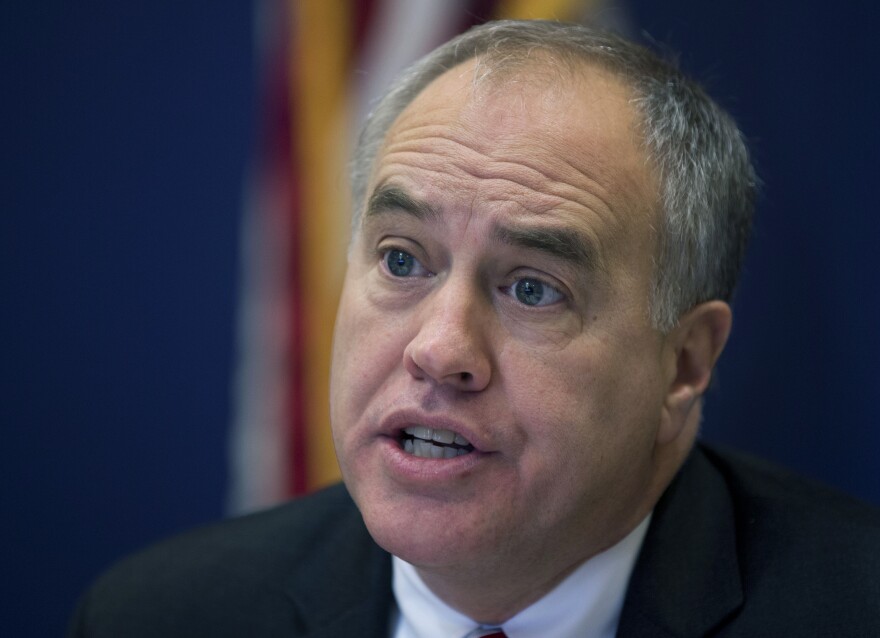Counties across New York are concerned over reports that sales tax collections are plummeting, and are asking Governor Andrew Cuomo’s tax department for an explanation.
The New York State Association of Counties, dismayed over a report by the State Comptroller that sales tax collections have slowed to half of what they were last year, are asking Governor Andrew Cuomo’s tax department for more information, said the group’s Executive Director, Stephen Acquario.
“Are we seeing a trend here?” Acquario said the counties are asking the tax officials.
The counties, in their letter, propose possible explanations, including declining fuel prices and the bad weather over the winter. But they said they’d like to know for sure, and that they could use more help in “identifying any significant state, regional or industry specific economic trends that may impact sales tax receipts for the remainder of 2015 and through 2016.”
According to the Comptroller’s report, 33 counties saw negative sales tax returns, with the steepest declines in the Southern Tier, Mohawk Valley, Finger Lakes, and the Mid-Hudson region. New York City’s sales tax collections grew at half the rate from the same time period in 2014.
Comptroller Tom DiNapoli says sales tax growth was already slowing in 2014, and if that continues, it’s a concern.
“Certainly, it would indicate less consumer activity,” DiNapoli said.
DiNapoli said it may be “too soon to tell” though if it indicates another economic downturn.
The Comptroller’s office does not have the specific industry breakdowns of the tax collections.
Acquario said they’d like more information about certain categories of tax revenue. For instance, he says, sales tax collected from a category listed as gas stations can be either from fuel or from convenience store items.
The counties would also like to know more about how taxes collected from Internet sales are collected and distributed.
Acquario said local governments are already feeling the squeeze from the property tax cap, which is projected to grow at less than 1 percent in 2016, and state mandated expenses.
He said counties are grateful that Cuomo and the legislature agreed to limit the growth of Medicaid costs for counties to 3 percent a year. But he sad New York uniquely requires counties to pay for one quarter of the entire program.
Medicaid is now commemorating its half century anniversary, and he said it’s time to rethink the funding breakdown.
“That’s 50 years of local property taxes paying for a federal program that no other state in the United States forces local property taxpayers to do,” Acquario said. “We need to continue to talk about it.”
DiNapoli said the tax cap plan originally included cutting state regulations, to help local governments and schools reduce costs, but that’s been slow to materialize.
“It’s fair to say that with the exception of the state takeover of increased costs of Medicaid, you haven’t seen much by way of mandate relief,” said DiNapoli, who said state aid to localities has also not increased.
Cuomo appointed a commission to study mandate relief, but it ended without reaching many conclusions.
The state tax department did not have an immediate answer on whether or not it could break down the sales tax collection data.


